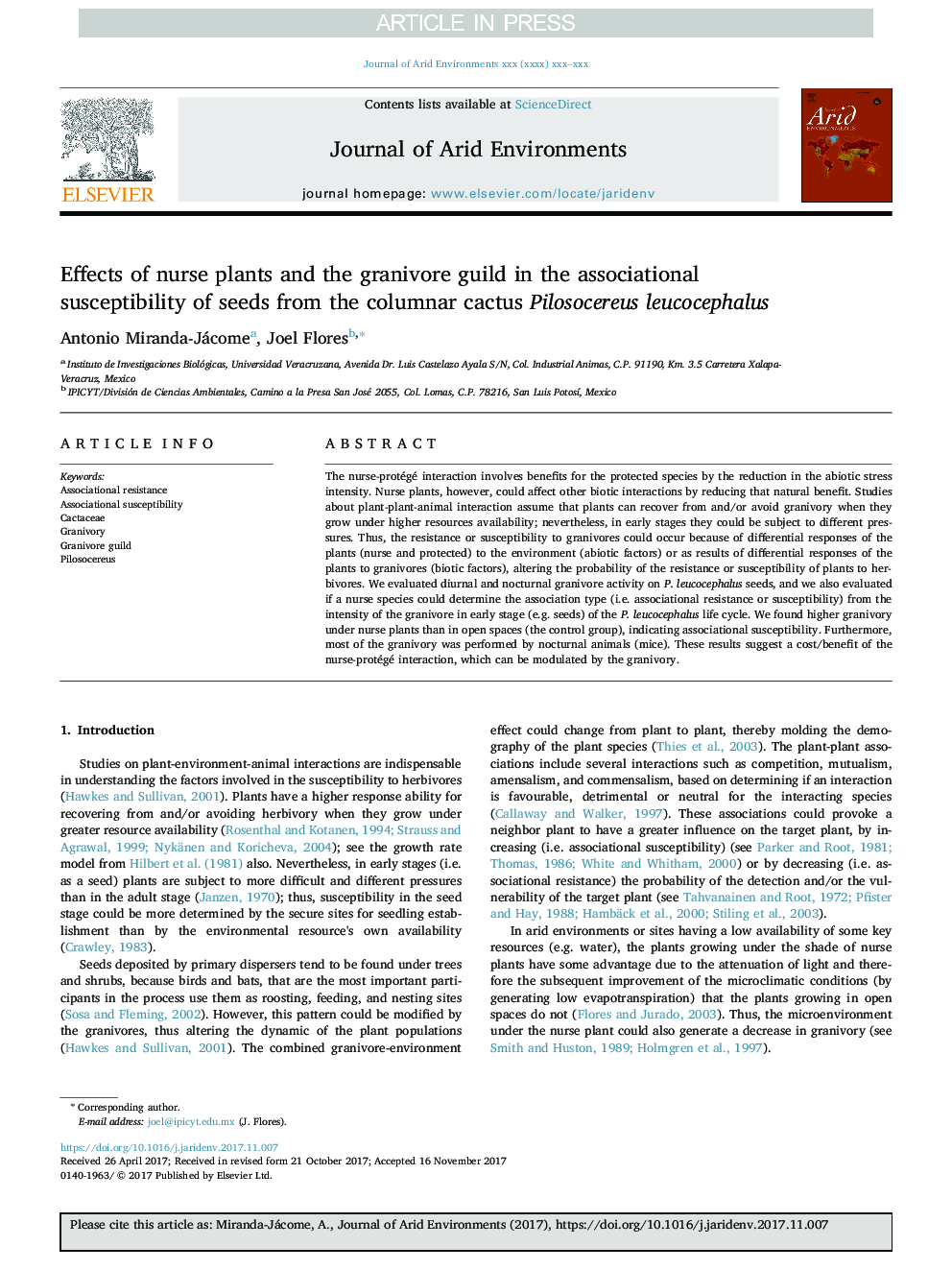| Article ID | Journal | Published Year | Pages | File Type |
|---|---|---|---|---|
| 8848542 | Journal of Arid Environments | 2018 | 6 Pages |
Abstract
The nurse-protégé interaction involves benefits for the protected species by the reduction in the abiotic stress intensity. Nurse plants, however, could affect other biotic interactions by reducing that natural benefit. Studies about plant-plant-animal interaction assume that plants can recover from and/or avoid granivory when they grow under higher resources availability; nevertheless, in early stages they could be subject to different pressures. Thus, the resistance or susceptibility to granivores could occur because of differential responses of the plants (nurse and protected) to the environment (abiotic factors) or as results of differential responses of the plants to granivores (biotic factors), altering the probability of the resistance or susceptibility of plants to herbivores. We evaluated diurnal and nocturnal granivore activity on P. leucocephalus seeds, and we also evaluated if a nurse species could determine the association type (i.e. associational resistance or susceptibility) from the intensity of the granivore in early stage (e.g. seeds) of the P. leucocephalus life cycle. We found higher granivory under nurse plants than in open spaces (the control group), indicating associational susceptibility. Furthermore, most of the granivory was performed by nocturnal animals (mice). These results suggest a cost/benefit of the nurse-protégé interaction, which can be modulated by the granivory.
Related Topics
Physical Sciences and Engineering
Earth and Planetary Sciences
Earth-Surface Processes
Authors
Antonio Miranda-Jácome, Joel Flores,
